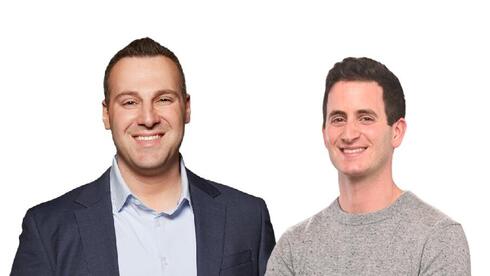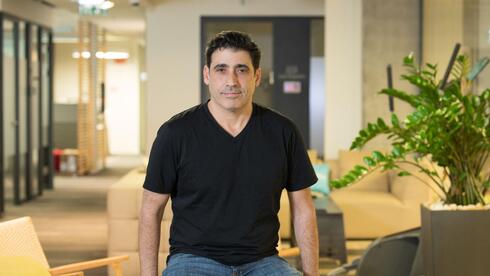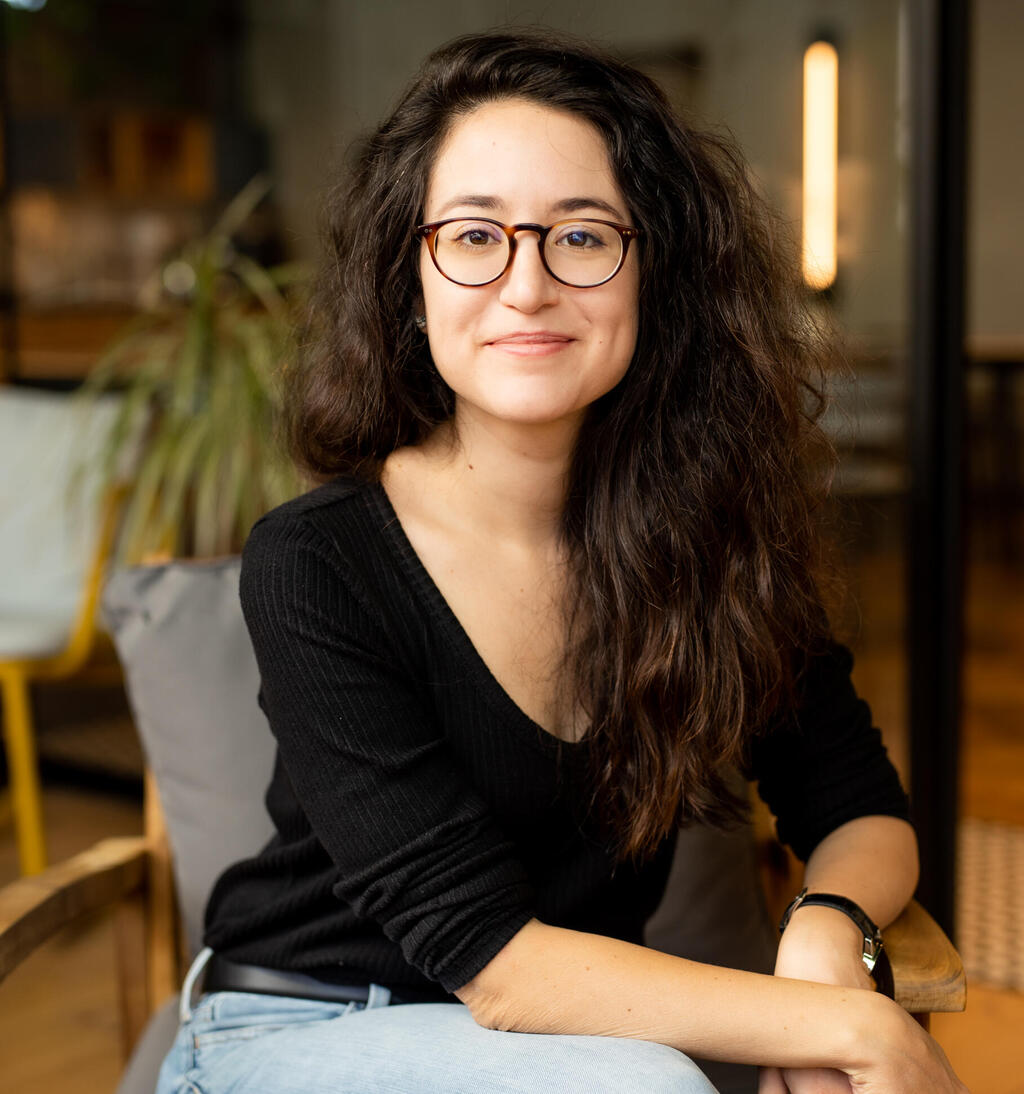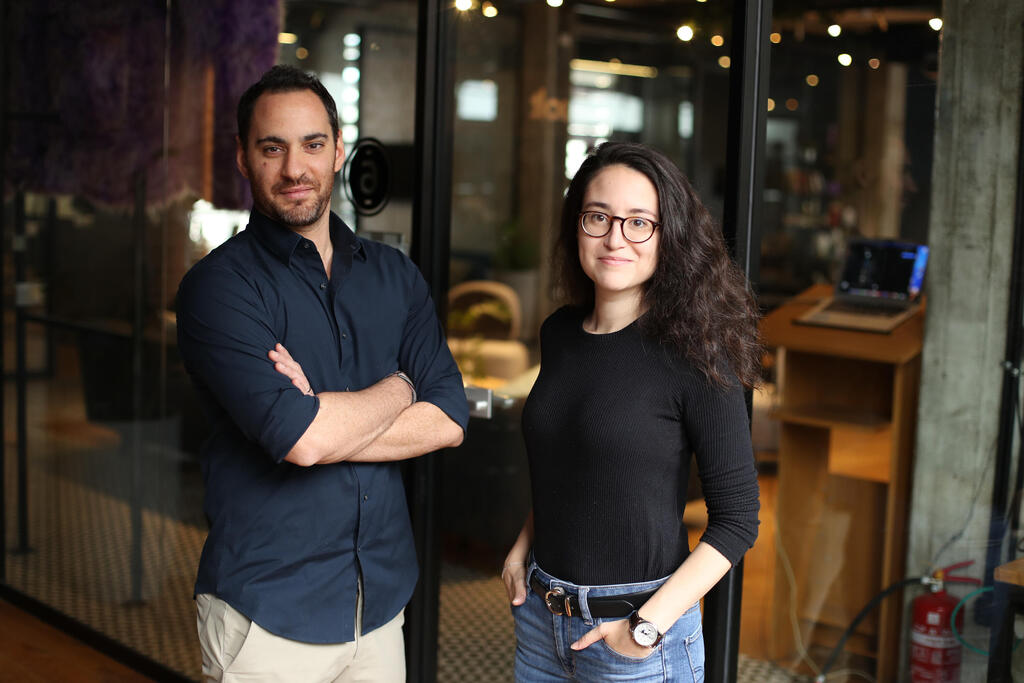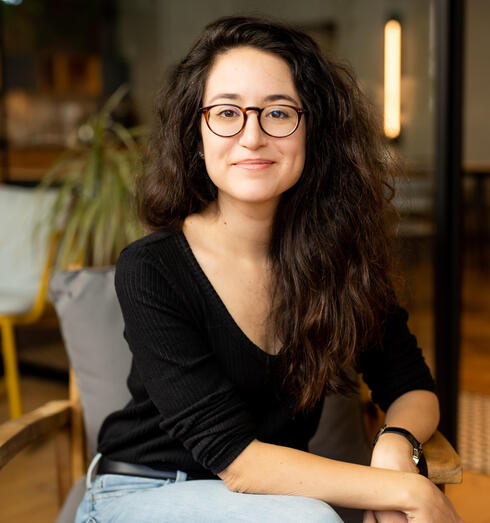
“There are so few female founders; this has to be put in the past”
Eve Mamane, Co-Founder and CRO of mental health startup Agave Health, spoke to CTech about founding her first venture, the need to normalize female founders, and why the tech industry must eliminate outdated limitations on women in leadership roles
A few weeks after Eve Mamane decided to leave her tech job to start her first venture, she found out that she was pregnant with her first child. “I had never met a female founder before, but it didn’t occur to me that it would be a limitation. Once I found out I was pregnant, I had my first uh-huh moment,” she says. “I worried that I had just quit my job and we didn’t know yet if this would be successful or not. I was especially worried that investors would think of me as a question mark.”
But, being pregnant quickly turned out to be an asset in screening potential partners. “It was actually a great filter. When you’re working with investors, especially at the beginning, they're supposed to be more than a check. They’re people who advise you when things are difficult.” If investors were concerned or put off by her impending motherhood, they were not a good match.
Besides, as Mamane points out, “We all have unknowns. Market dynamics change on you. You could find out tomorrow that you're sick or have an accident which could impact the company significantly. At least with pregnancy and motherhood, you have nine months to plan at minimum.”
While pregnant, Mamane co-founded Agave Health in 2022 with CEO Ori Fruhauf. Agave offers the “first virtual clinic” for adults with ADHD, aiming to provide a comprehensive solution platform that addresses a variety of needs. The company, which includes 23 employees and care providers, is headquartered in New York, with Mamane, who serves as the CRO, based in Tel Aviv.
The company has raised $3 million to date from several VCs, including Good Company, Difference Partners, K Ventures and SeedIL. “I gave birth right after we signed with Good Company,” Mamane says. “I was working full-time, managing a company, building a product, launching it, meeting with investors and potential clients, and all with a newborn in my arms who had to be fed.” Now, pregnant with her second child and raising funds for Agave’s seed round, Mamane says that going through the process the second time is much easier.
Mamane stayed at home for six weeks after giving birth to her daughter, Zoe, during which she was still participating in meetings over Zoom. “I would breastfeed during meetings. I'd introduce her and she'd sleep, feed, and do whatever she needed to do. I closed investments like that,” she says, smiling. “It was just obvious that I had to be in that meeting and that this is also when she needs to be fed. Why shouldn’t I do both?”
From a junior to a founder
Originally from Switzerland, Mamane moved to Israel in 2009. Her foray into the tech world began at Wix as an entry-level marketing employee. “From there, everything moved quite fast,” she says. After two years at Wix she moved to Fiverr, before relocating to Ireland for two years to work for Google. She went on to serve in managerial roles at two other startups, at which point, Mamane was ready to build something of her own.
“I realized that I wasn’t going to make a very good employee for much longer. I love to learn and do new things. I get bored easily. When you’re at a big organization, there’s a point where you start to step on other people’s toes because roles are so defined. That didn’t suit me in the long run,” she says.
As a first-time founder, Mamane wanted a partner who had experience raising funds and was willing to step into the role of CEO. She decided to enlist Fruhauf, one of the co-founders at UpRight who she had worked with and trusted, to help her found what would become Agave Health.
She was inspired to create a virtual platform for adults with ADHD due to her husband’s experience with it. “Through him, I got to see how ADHD impacts every aspect of a person’s life. I saw that the traditional care model, which is still very focused on medication, is really insufficient for helping adults to understand their brain and build habits that suit them. There were a lot of innovative solutions for kids but not for adults.”
Mamane witnessed her husband’s quality of life drastically improve after consulting with medical professionals, finding alternative treatments including coaching and specialized therapy, and using medication as a supplementary tool as opposed to the only available treatment.
“I realized that there was a huge opportunity here. There’s an enormous population all over the world who needs this support and doesn’t have any alternative solutions,” she says. There are approximately 13 million adults in the United States who have been diagnosed with ADHD, though the actual number of undiagnosed adults is estimated to be over 50 million in the U.S. The neurodiversity market is estimated to reach $132 billion by 2030.
This perspective informed the solution provided by Agave, delivered via app, which includes four components: personalized coaching, access to a virtual audio and visual library where users can learn more about how ADHD impacts their cognitive behavior, a community network, and therapy which includes evaluations and diagnosis by accredited psychologists who specialize in ADHD. The entire platform has clinical backing and was designed by Agave’s clinical director and in consultation with their clinical advisory board.
The neurodiversity tech space is relatively nascent, and all companies are early-stage. The main alternative solutions include Joshin which offers neurodiversity coaching and Shimmer which offers ADHD coaching - services offered by Agave in addition to the rest of their platform.
Agave launched its platform in February 2023 in the U.S. and began selling it to employers later that year. Today, it is accessible to users independently, though many customers access it via workplace healthcare plans and offerings.
Not enough female founders
The number of female founders in Israel’s tech ecosystem has remained low, with women accounting for only 12% of entrepreneurs who secured initial funding in 2023. Only 17% of the startups that raised their first funding in 2023 had at least one female founder. These statistics are notably lower than in the U.S. or Europe, where 26.3% and 25.5% of startups that secured funding in 2023 had at least one female founder.
Mamane says that Israel’s industry as a whole needs to be more accommodating and flexible for parents, especially when the cost of living is such that both parents are required to work. She says that this lack of flexibility is a major barrier to more women becoming founders, pointing to fears of being professionally penalized for starting a family and feeling forced to choose.
“If I had gone through pregnancy as an employee, I would have been so anxious. I’ve seen women come back from maternity leave and fight tooth and nail to prove themselves,” says Mamane. “I know many fellow mothers who have a lot of anxiety that if they get pregnant they won’t get a promotion, or if they go on maternity leave they’ll lose their jobs. On paper the tech industry lets you go and come back, but in practice, you’re still at a disadvantage. If my husband has to take time off or leave work early to pick up Zoe, nobody cares. He doesn’t have to pay a price, whereas a woman does.”
3 View gallery
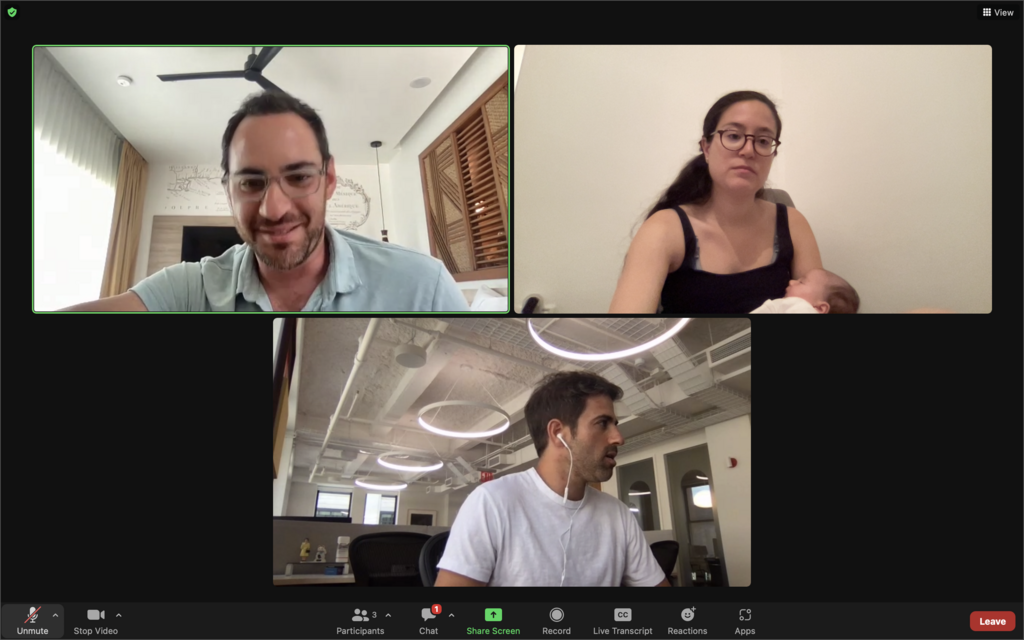

Ori Fruhauf (L), Eve Mamane and daughter Zoe (R), in a Zoom meeting.
(Credit: Screenshot)
Mamane says that being a founder and her own boss has been advantageous in many ways, including that she could decide her own schedule and didn’t fear for her job while pregnant in the same way that a salaried employee might. She organizes her days so that she works while her daughter is at daycare throughout the day, takes a break for a few hours to pick her up and be with her until she goes to sleep, before going back to work typically until 2:00 AM.
As exhausting and challenging as the first year of motherhood and founding her startup were, she felt that the two complemented each other. “It didn’t actually slow me down. I realized before Zoe was born that the most important thing was for me to be smart about logistics. It forced me to be more efficient and productive because my daughter is a responsibility that I can never shut off. I had a lot of support though and Ori was a champ about it.”
As impressive as Mamane sounds, she balks at the notion that her reality should even provoke interest. “It's just not normalized because there are so few female founders. This has to be put in the past. I really hope that in a couple of years this will be the most boring topic.”





